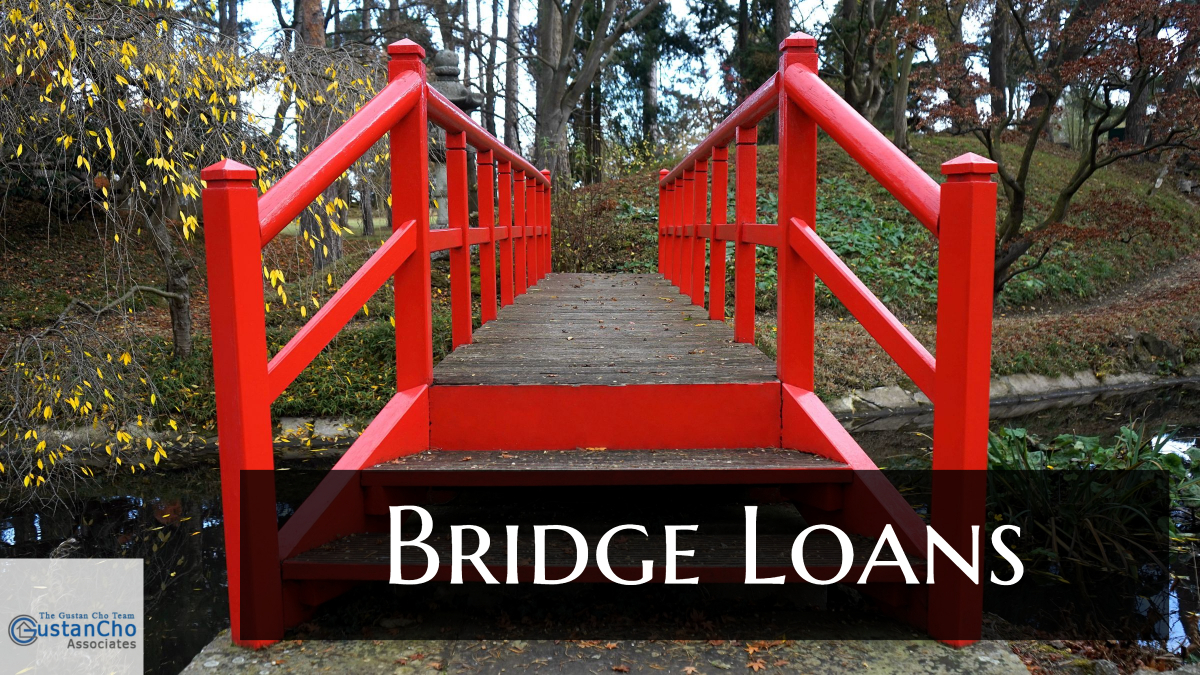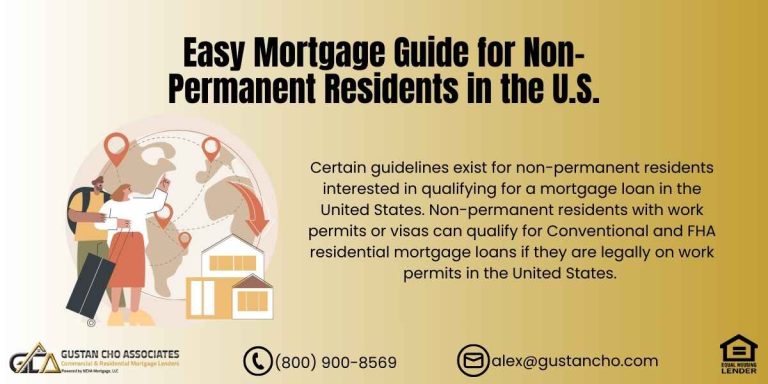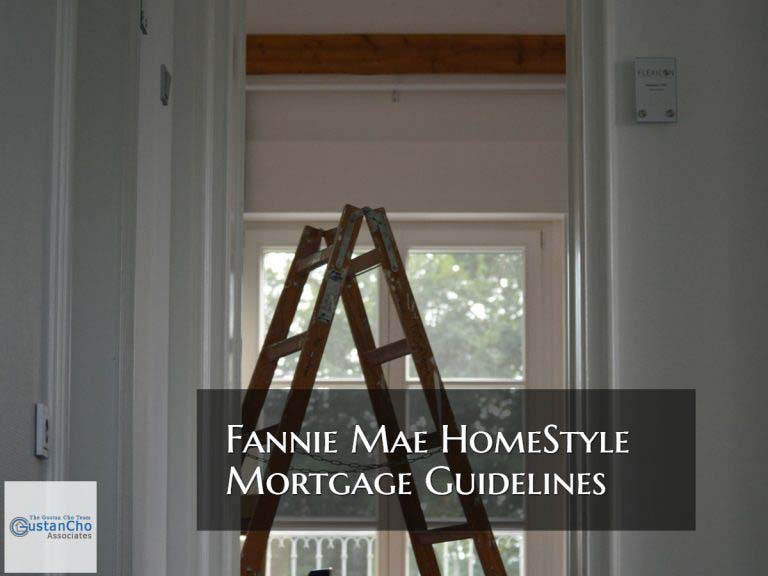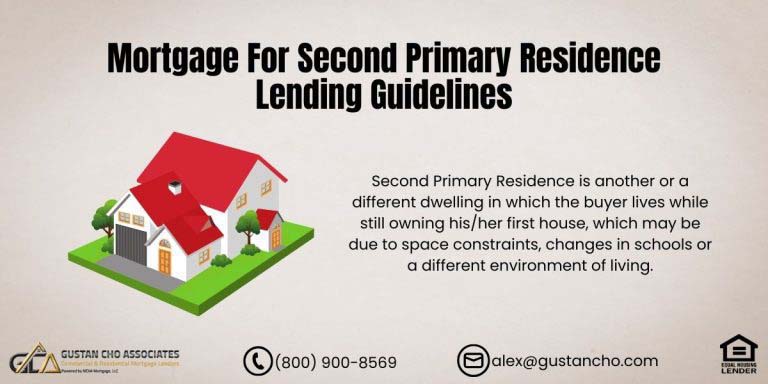This guide covers bridge loans for investment properties lending guidelines. Hard money bridge loans are a great tool for real estate investors. Even investors with great financials and those who can qualify for traditional bankable commercial loans utilize hard money bridge loans in many cases. Short term hard money loans is often used when real estate investors purchase commercial and/or investment properties that need stabilization. In this article, we will cover and discuss Bridge Loans For Investment Properties Lending Guidelines.
Bridge Loans for Investment Properties: A Straightforward Guide to Lending Rules
Bridge loans give real estate investors quick cash when time is tight, letting them grab a deal before someone else does. Knowing how these loans work-nuts and bolts of the lender’s playbook-can make or break your project, whether you flip houses, freshen rental units, or stabilize a larger property. In this simple, search-friendly guide, we break down bridge loans, their upsides, who qualifies, possible downsides, and the steps to secure funding for investment homes.
Need Fast Funding for Your Next Investment Property?
Bridge loans help you buy now, refinance or sell later—with flexible terms.
What Is a Bridge Loan for Investment Properties?
Think of a bridge loan as short-term money that fills the gap between urgent cash needs and longer-lasting funds or a sale. For investors, this option frees up dollars to buy or fix up a property-a starter home, multi-family building, or even a vacant flip-before a long mortgage or a buyer rides in. Usually the house itself backs the loan, and terms run anywhere from a few months to nearly two years.
Key Features of Bridge Loans
- Short-Term Duration: Most deals close in 6 to 24 months, though some lenders add a few extension months.
- Fast Funding: Many approvals land in just 3 to 10 business days, which is huge in a fast-moving market.
Things to Know About Bridge Loans
- Higher Interest Rates: Because bridge loans are short-term and carry more risk for the lender, interest rates usually land between 7% and 15%.
- Asset-Based Lending: Instead of digging deep into your credit score or steady paycheck, these lenders check the propertys value-what it could be worth after repairs, also called ARV.
- Flexible Repayment: You might choose interest-only payments each month or a larger balloon payment when the loan comes due.
Why Use Bridge Loans for Investment Properties?
Real estate investors love bridge loans because they move fast, bend the rules a little, and let you jump on a deal the moment it pops up. Here are the main reasons folks pick them:
- Quick Access to Capital: While standard mortgages may take weeks to finalize, bridge financing often closes in just a few days, so you can beat rival bids.
- No Sale Contingency: With cash-like speed, you can make offers that dont depend on selling another property, making your proposal much more appealing to sellers.
- Financing Renovations: The loan can cover both the purchase price and repair costs, which is exactly what fix-and-flip or value-add projects need.
- Flexible Underwriting: Hard-money shops care more about the houses value than about a shaky credit history, opening the door for many would-be investors.
- Support for BRRRR Strategy: The Buy, Rehab, Rent, Refinance plan works with bridge money, letting you grow your portfolio without locking up all your own cash.
Lending Guidelines for Bridge Loans
Bridge loan rules can change from one lender to the next, yet most follow a recognized checklist designed for investment properties.
Here are the main boxes you need to check:
Property Eligibility
- Types of properties: You can get a bridge loan on houses, condos, or small single-family rentals, multi-family buildings like duplexes and larger apartment blocks, and even on commercial locations such as offices and small shops.
- Condition: Many lenders will back a distressed or fixer-upper home, especially when you plan to flip it, though they usually want rentals to be rent-ready before giving approval.
- Location: Most applicants find lenders eager to fund homes in busy cities or suburban neighborhoods.
- In contrast, quirky assets like mobile homes or log cabins often get pushed to the sidelines.
Loan-to-Value (LTV) and Loan-to-Cost (LTC) Ratios
- LTV: Bridge lenders commonly salute between 65 percent and 80 percent of the current value or what the property will be worth after repairs, so a house destined for a $200,000 ARV usually unlocks a loan around $160,000 at 80 percent.
- LTC: When the project needs heavy lifting, many bridge shops raise the ceiling to roughly 90 percent of the purchase price plus rehab costs, granted the budget looks solid.
- Collateral: The real estate itself is the main guardrail, and some shops may ask for a first lien position or even a personal guarantee just to be safe.
Borrower Requirements
- Credit score: Standard lenders typically seek scores in the 650-to-740 range, yet many hard-money shops will shake hands with borrowers at 500 or 600 and some may skip the score check altogether.
- Debt-to-Income (DTI) Ratio: Many lenders look at a borrower’s debt-to-income ratio when deciding how much they can afford to pay each month.
- While some will let you push that DTI all the way up to 50%, the majority pay more attention to the cash flow the property itself is expected to produce rather than your personal paycheck.
Experience
- If you want a better rate on a Residential Transition Loan (RTL), expect to show proof of three to five completed deals.
- New investors still find welcoming options, however, through hard-money lenders, who tend to be much easier on the experience requirement and will lend based on the propertys value instead.
Exit Strategy
Before signing any bridge loan, the lender will want to know how you plan to pay it back-day one. Common routes include selling the home at a profit or refinancing later into a longer mortgage, like a DSCR or a standard agency loan.
Documentation
Bridge loans ask for far less paper than a typical 30-year mortgage, especially if you go with a hard-money firm:
- Property details: Bring an appraisal, recent sales comps, or a good ARV estimate.
- Financial statements: For commercial or multifamily projects, include rent rolls and income/expense reports.
- Rehab plan: On a fix-and-flip, hand over a clear scope of work or a detailed budget.
- Proof of equity: Show that at least 20% is yours if you are using an existing property as collateral.
Fees and Costs
- Interest rates: Sit between 7%-15%, with hard-money loans usually at the high end (10%-15%) and RTL deals closer to 9.75%-11.75%.
- Origination fees: Most lenders charge 1%-2% of the total loan value.
- Other costs include the appraisal ($300-$400), title search ($200-$400), notary ($40), plus typical closing expenses.
No Prepayment Penalties
Unlike traditional loans, many bridge loans let you repay the loan early without hitting you with extra charges.
Repayment Structures
- Interest-Only Payments: You pay only the interest each month, and the full principal is due at maturity.
- Balloon Payments: The entire principal balance must be paid at the end of the term, usually from a property sale or refinancing.
- Deferred Payments: Some lenders let you postpone payments until the property sells, freeing up cash in the meantime.
Types of Bridge Loans for Investment Properties
Bridge loans generally slip into two main buckets for real-estate investors:
Hard Money Bridge Loans
- Best For: New investors, low credit scores, or distressed properties needing quick rescue.
- Features: Flexible underwriting, no income docs, higher rates (10%-15%), and lower LTV (65%-75%).
Example:
Park Place Finance can close in 3-5 days based purely on property value-no tax returns or debt-to-income proof required.
Residential Transition Loans (RTL)
- Best For: Seasoned investors with steady income and a track record.
- Features: Lower rates (9.75%-11.75%), higher LTV (up to 80%), and the loan must be secured by an LLC or similar business entity.
Bridge the Gap Between Deals With Investor-Friendly Lending
Get quick access to capital for acquisitions, flips, or 1031 exchanges.
Benefits of Bridge Loans for Investors
- Speed: Loans can close in just days, letting you outbid cash offers in hot markets.
- Flexibility: Borrowers can fund unusual assets or projects that traditional banks would reject outright.
- Leverage: Bridge financing can cover up to 90% of purchase and rehab costs, allowing you to keep more cash on hand.
- Competitive Edge: Because they erase many deal-killing contingencies, bridge loans make your offer far more tempting to sellers.
- Tax Deductions: In many cases, the interest you pay on a bridge loan for an investment property can be deducted, though you should check the latest tax rules.
- High Costs: Rates often sit between 7 percent and 15 percent, and fees regularly outstrip the 3 percent to 6 percent you see with traditional mortgages.
- Short Repayment Terms: If your home does not sell, or you cannot refinance, the typical twelve- to twenty-four-month window shrinks fast and money stress may turn into foreclosure.
- Dual Mortgage Burden: Until your old property sells, you are stuck paying two sets of monthly bills—never a comfortable place for any investor.
- Limited Protections: State and federal rules that shield borrowers on most conventional loans are usually much weaker with bridge financing, leaving you more exposed if the sale falls apart.
- Assess Property Value: Start with a solid appraisal or a reliable After Repair Value estimate so you know what the bank will offer.
- Prepare Documentation: Pull together the propertys title, any rental agreements, recent tax returns, and a clear rehab plan detailing expected costs and timelines.
- Choose a Lender: Shop around-Fast cash from hard money lenders like Park Place Finance and Lima One Capital, or mid-range terms from bank-like RTL lenders such as Chase for multifamily buildings.
- Demonstrate an Exit Strategy: Be clear about how you will pay the loan-whether thats selling the older property, refinancing with conventional debt, or bringing in steady rental income.
- Maintain Equity or Cash Reserves: Expect to show at least 15 to 20 percent equity in the subject asset, or keep liquid savings on hand to cover any surprise costs during the bridge period.
Top Bridge Loan Lenders for Investment Properties
If you need quick cash to grab a rental or fix-and-flip house, these lenders are worth a look:
- Lima One Capital kicks things off with rates between 7% and 10 percent and will go as high as 80% LTV on multifamily bridge loans.
- Park Place Finance shines in the hard-money space, closing deals in just three to five days and skipping most income checks.
- Easy Street Capital can wire the money in 48 hours, offers rates starting around 8.9 percent, and lets you pay only interest until exit.
- JPMorgan Chase runs a bridge-to-agency program for larger multifamily projects, giving you custom terms tied to the propertys cash flow.
Alternatives to Bridge Loans
Not every deal calls for a bridge loan, so here are backup plans that may fit your needs:
- A HELOC draws lower rates similar to bridges once you have decent credit and enough equity in your primary residence.
- Personal loans tend to carry higher costs and smaller limits, yet they ask for no home or rental as collateral.
- A cash-out refi releases equity from an existing rental or primary home, but be ready for weeks of paperwork and waiting.
- Finally, a contingency offer makes your new purchase hinge on selling another property.
- It avoids debt but may anger a seller who wants certainty.
- Bridge loans give real estate investors the edge they need when a great deal pops up and time is short.
- Thanks to relaxed underwriting, quick closings, and cash that covers both purchase price and repairs, these loans let buyers move faster than the competition.
- Still, todays high rates, brief repayment periods, and the chance of running into cash-flow trouble mean every step should be thought through carefully.
By learning broker checklists-property type, LTV or LTC limits, borrower requirements, and a clear exit plan-investors position themselves to expand their portfolios wisely and safely. Thinking about a bridge loan for your next property flip or rental? Reach out to lenders like Lima One Capital or Park Place Finance, walk them through your project, and lock in a loan that fits your timeline and budget. And always shop around, weigh the trade-offs, and confirm youll have a definite payoff plan in place before signing any agreement.
Benefits Of Investment Bridge Loans For Real Estate Investors
Here is how investors use hard money commercial bridge loans:
- To purchase fix and flip properties
- Investors buying foreclosures
- To purchase an empty vacant apartment building with no rental income
- To purchase vacant boarded-up homes in need of rehab
- To purchase vacant office buildings in need of rehab
- To purchase abandoned properties in need of rehab
How Are Bridge Loans Used By Investors
Investors use short term hard money bridge loans to do the following:
- To purchase the property
- To rehab the property
After investors are done rehabbing and stabilizing the property with their short term hard money bridge loans, they do the following:
- After completion of the rehab, whether it is a single-family home, apartment building, office complex, the investor can sell it and/or
- Get tenants in with leases and
- Refinance it to a long term commercial loan or
- Sell it for a profit
Bridge loans are used for interim financing and used due to the following:
- No pre-payment penalties for paying off the loan early
- Fast closings
- Most hard money bridge loans can close in two to three weeks
- Little documentation required
Residential Bridge Loans
There are two types of bridge loans:
- Residential Bridge Financing
- Commercial Bridge Financing
Reasons for residential bridge financing is to purchase a new home prior to selling an exiting home. A buyer of a new home need down payment and closing costs on a home purchase. If they are exiting an existing home and that home has a lot of equity and cannot come up with a down payment for another property purchase, the borrower can get a bridge loan on the existing property for the down payment for the next property purchase.
Types Of Bridge Financing
Here is how homeowners can get bridge loan financing with an exiting home to get the down payment funds to purchase the second home:
- Get a HELOC, Home Equity Line Of Credit
- Get a Bridge Loan
- Short Term Private Money Lenders normally do not want to be in the second position
- They would normally pay off the first mortgage and get you a new loan
- Homeowners can get the balance of the funds after paying the first position lender off
- Homeowners who are exiting their existing home can get short term bridge financing as an investment property and keep it as a rental for a few years prior to selling it
- This is a good idea for areas where real estate prices are hot
- Great benefits of bridge loans are when a home buyer makes a real estate purchase offer with no finance contingency
Needs quick financing or is making an offer on a property that is hot and under market and sellers want no finance contingencies.
Close Fast on Investment Properties With a Bridge Loan
No income docs, no delays—just short-term funding that works for you.
Residential Bridge Loans Versus HELOC
HELOC’s or second mortgages are much less expensive and have much lower rates than short term bridge loans. However, there is much more paperwork and takes more time in closing a HELOC than bridge loans. Borrowers need to weigh the pros and cons on the type of bridge financing they need, the purpose, and the costs involved.
Benefits Of Bridge Financing
Bridge Financing is not for everyone. Bridge Financing can be beneficial for borrowers who are non-bankable and the following:
- Recent bankruptcy, short sale, deed in lieu of foreclosure, or standard foreclosure
- Borrowers with bad credit and low credit scores who need time to restore their credit and boost their credit scores
- Real Estate Investors who need fast cash and quick closing due to hot properties
- Investors who qualify for traditional investment property loans but do not want long term financing due to pre-payment penalty
- Property Flippers who do not need long term financing
- Investors who need a long term low-interest rate mortgage after rehabbing and stabilizing the property
Bridge Loans are short term financing that is used to bridge the gap between the existing condition of the property and after improved value of the property.
Loan Programs
Gustan Cho Associates Mortgage Group is a one-stop lending shop. We offer residential and commercial financing in most of the 50 states.
Here are the loan programs available:
- Residential FHA Loans, Conventional Loans, Jumbo Mortgages with no lender overlays
- Hard Money Loans
- Short Term Private Money Loans
- Fix And Flip Rehab Loans
- Rental Income And Investment Property Loans
- Bridge Loans
- Accounts Receivables Financing
- Equipment Leasing Financing
- Non-QM Loans: No waiting period after bankruptcy and/or foreclosure
- Bank Statement Loans
- Second Home Financing
- Non-Warrantable Mortgages
- Condotel Financing
How Do Real Estate Investors Qualify For Bridge Lending
Bridge Lending is a type of hard money and/or private money lending. Most short term bridge lenders are not too concerned with borrowers but more on the property. The property is underwritten and the main security to the lender is the equity of the property.
Here is what hard money bridge lenders look at when underwriting Bridge Loans:
- Loan To Value:
- Most bridge lenders want 20% to 40% down payment
- The amount of down payment required depends on the strength of the borrower
- The lower the borrower’s credit scores and credit profile, the higher amount of down payment is required and the higher the interest rate
- Borrowers with bad credit and no income can qualify for short term hard money loans as long as they can come up with the down payment
- There are no set mortgage guidelines on short term hard money bridge financing
- It is based on a make-sense case by case scenario type of underwriting approach.
Short-Term Financing Solutions for Real Estate Investors
Whether you’re flipping or holding, bridge loans keep your projects moving.
Costs And Fees For Short Term Investment Property Loans
There are fess and costs involved for short term investment property loans. Interest rates depend on the amount of down payment the real estate investor puts down and the type of property. Lenders will charge higher interest rates on investment property loans on properties and borrowers who they deem higher risk.
Risk factors are assessed by the following:
Type of property:
- Single-family homes and apartment buildings are the safest and have the lowest interest rates
- Office complexes and strip malls are considered riskier
- Gas stations are higher risk
Liquidity:
- Lenders will assess in the event borrowers default, how fast will the property sell
Typical Charges On Short Term Hard Money Loans
Fess and costs of short term financing can be expensive.
Here are typical charges that investors may be charged:
- Origination Fees
- Points
- Administration Fees
- Appraisal Fees
- Due Diligence Fees
- Escrow Fees
- Title Policy Fees
- Notary Fees
- Recording Fees
- Wire Fees
- Courier Fees
- Draw Fees
Real Estate Investors who have more questions on short term hard money bridge financing, please contact Gustan Cho Associates at 800-900-8569 or text us for faster response. Borrowers can also email us at gcho@gustancho.com. Gustan Cho Associates Mortgage Group is available 7 days a week, evenings, weekends, and holidays to take calls and answer any questions. We are residential, commercial, and alternative financing advisors and lenders.
Leverage Equity and Move Quickly on Opportunities
Bridge loans give you the power to act fast in competitive markets.









